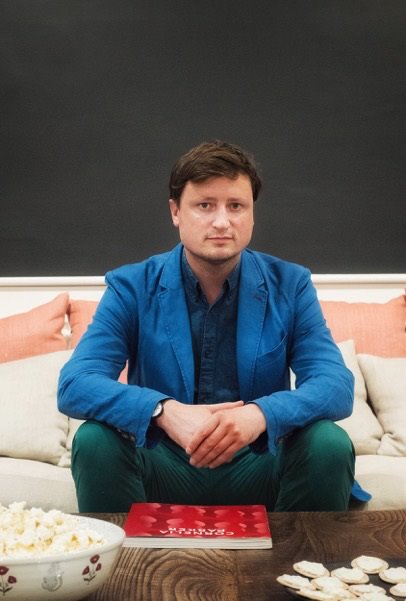Name: Ben Street
School: School of Art, Media and American Studies
Research area: PhD in Art History
Bio: My research focuses on the late work of the American artist Philip Guston. I am returning to education after nearly 20 years as a teacher of art history, writer and museum educator in the UK and USA. My approach to research is informed by these experiences, in that I am interested in models of education in artistic practice, and, having taught a wide range of art historical periods, my thinking is energised by placing works of art in a range of different contexts. My choice of this particular artist and this period of his work is really an extension of that, in that he put particular ideas he located in older models of art to use in his late work. My research investigates how and why he did so.

What is life as a postgraduate student at UEA like? Describe a typical day
This is a tough question to answer, as I started this year (2020) and have been part-time, as I am continuing to teach in London. So there is – as yet – no typical day, at least until I switch to full-time study next year. So far, my work is mostly nocturnal, as I have a baby daughter who gobbles up my days.
Why did you choose UEA?
I knew exactly what I wanted to research and based my decision on supervisors I thought would be good to work with – and I have definitely been pleased with my choice. I am also originally from Norfolk and was drawn to studying back in my home county.
Any tips for choosing a project / supervisor?
At this early stage it’s hard to answer this, but effective communication is really central. Again, I’ve been really pleased with this. As for project, someone who wrote their PhD on the same artist recently told me to not shy away from a subject if it seems to have been written about too much. Nothing has ever been written about too much.
How is postgraduate study different to undergraduate study?
This is probably what’s always said, but it is essentially self-directed and you have to find your own motivation to move forward – obviously your supervisor is of great help here too. But I guess you don’t go into it without having some sort of motivation to do so; it’s just a matter of sustaining it. Also crucial is the willingness to allow the research to transform your thinking about your subject, and thereby change your focus. There’s an important element of trust in the process there.
What has most surprised you about your postgraduate study at UEA?
So far, no great surprises. It has met my expectations and in some ways surpassed them.
Any highlights of your experience?
I’ve sat in on, and contributed in a small way, to a couple of meetings with faculty and fellow researchers to present current research. These two (one IRL, one virtual) have been really enlightening both for the diverse and fascinating content of other people’s research and for the opportunity to air one’s current thinking in a supportive and intellectually rigorous environment. Plus, of course, they’re fun.
What kind of activities you have got involved with at UEA (e.g. networks, conferences, events, outreach) that have helped your research?
So far none, but I am keen to participate in all of the above, especially conferences.
What is writing your thesis or preparing for a viva like (if you’ve got there yet!)
Way too early to say!
What would you say to someone thinking of coming to UEA?
Norwich is an amazing city for a thousand reasons, but above all it’s a highly dynamic cultural environment set in the United Kingdom’s greatest county. The UEA campus, which I’m getting to know, is village-like and very welcoming and the Sainsbury Centre, where my department is based, is a serene environment with an astounding collection of works of art.
…anything else you’d like to share!
I’m an atypical Postgraduate Researcher in that I am starting it in the middle of a career in which I thought I might not do one at all. I have realised that doing a PhD is not only of professional use to me, it’s also scratching an itch I forgot I had: to delve into complex research and develop and construct original thinking around it. It is – at this very early stage! – a highly intellectually exciting experience and I’m so glad I’m doing it.

:focus(1915x1038:1916x1039))